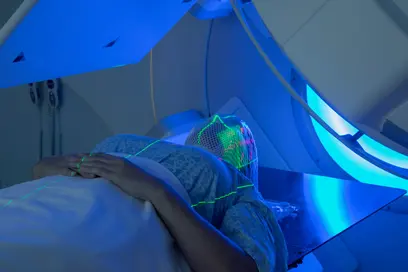Ana Banito studies sarcomas, an extremely heterogeneous group of tumors of the bone and soft tissue that particularly affect children. Despite decades of clinical studies, there is still a lack of effective treatments for these tumors. A common feature of sarcomas in children is their low mutation load. Instead, they often contain a genetic rearrangement specific for the respective tumor type. This leads to the formation of a fusion protein (onco-fusion), which drives the development of the disease.
The cell of origin of the vast majority of sarcomas is unknown. Ana Banito's lab has recently developed a versatile approach to model various types of pediatric sarcoma subtypes from mouse muscle. Using these models, she aims to identify the identity of the cells of origin of different sarcomas and to find out why they are prone to transformation.
Banito is particularly interested in whether the fusion proteins are also required for the maintenance of the tumor and, if so, to what extent the transformation to tumor cells is reversible. Do the tumor cells retain the memory of their previous normal state and can they possibly be reprogrammed?
Ana Banito studied biology at the University of Lisbon and completed her doctorate in the field of life sciences at Imperial College London in 2011. She then worked as a postdoc at the Memorial Sloan Kettering Cancer Center in New York, among other places. Since 2019, Banito has headed the “Soft Tissue Sarcoma“ junior research group, which is based at the Hopp Children's Cancer Center Heidelberg and the DKFZ.




